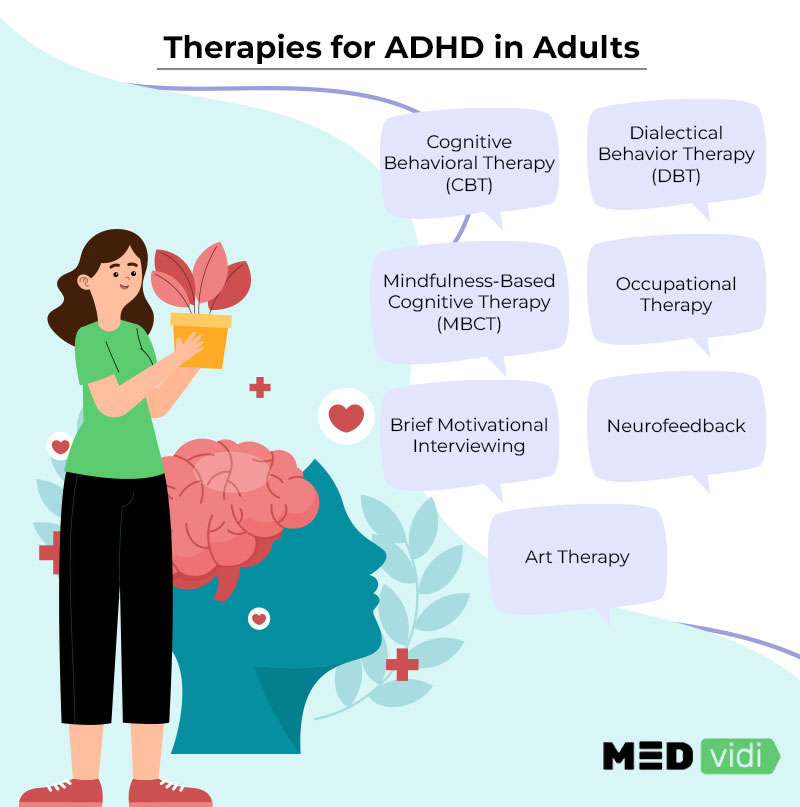Exploring Efficient ADHD Therapy Options for All Ages
The complexities of Attention deficit disorder (ADHD) present one-of-a-kind obstacles throughout various age, necessitating an extensive exploration of effective therapy options. A mix of behavior modifications, pharmacological treatments, and way of life adjustments has actually revealed pledge in attending to the diverse requirements of individuals with ADHD. Nonetheless, the effectiveness of these methods can vary substantially based upon individual circumstances, raising crucial inquiries concerning tailored methods. As we examine the range of treatment methods available, it comes to be necessary to take into consideration not only their immediate impacts however additionally their lasting ramifications for individuals and family members.
Recognizing ADHD and Its Influence
Attention-Deficit/Hyperactivity Disorder (ADHD) is a neurodevelopmental problem characterized by consistent patterns of inattention, attention deficit disorder, and impulsivity that can dramatically affect different aspects of a person's life. It generally shows up in childhood years, although signs can continue right into the adult years. The core signs and symptoms of ADHD can disrupt educational efficiency, impede social interactions, and complicate job-related undertakings.
People with ADHD frequently have a hard time with keeping emphasis on jobs, organizing tasks, and adhering to via on guidelines, which can bring about academic underachievement (Depression Treatment). In social contexts, impulsivity might cause difficulties in creating and maintaining connections, as individuals may disrupt conversations or make hasty choices without taking into consideration effects
The variability in signs and symptom presentation means that ADHD can affect individuals differently, necessitating a customized strategy to monitoring. Comprehensive understanding of ADHD's nature and implications lays the foundation for exploring appropriate therapy alternatives tailored to each individual's requirements.
Behavioral Therapies for ADHD
Countless behavior therapies have actually been developed to successfully attend to the difficulties connected with ADHD, concentrating on customizing specific behaviors and fostering necessary abilities. Among the most recognized techniques are cognitive-behavioral therapy (CBT), parent training, and social skills training.
CBT helps individuals identify and alter negative idea patterns and actions, promoting a much more favorable outlook and boosted self-regulation. This therapy frequently consists of practical approaches for handling impulsivity and improving organization. Parent training programs equip caregivers by furnishing them with methods to strengthen favorable habits and set constant boundaries, which can be especially advantageous for children with ADHD.
Social abilities training is an additional crucial element, training people with ADHD how to communicate properly with peers - Depression Treatment. This strategy usually includes role-playing and responses to enhance communication, participation, and problem resolution skills
Including these behavior modifications right into an extensive therapy plan can substantially improve working and lifestyle for people with ADHD. Ultimately, the efficiency of these therapies relies on tailored strategies that consider the one-of-a-kind demands of each person, therefore cultivating resilience and adaptability in daily life.
Drug Options Available
For lots of individuals with ADHD, drug can play a considerable role in managing symptoms and boosting overall functioning. The two key groups of medications suggested for ADHD are energizers and non-stimulants.
Energizers, such as methylphenidate and amphetamine-based medicines, are one of the most typically used therapies. These drugs function by boosting the levels of neurotransmitters, specifically dopamine and norepinephrine, in the mind, which helps boost focus and decrease impulsivity and attention deficit disorder. They usually yield rapid outcomes, making them a preferred alternative for numerous clients.

It is vital for healthcare service providers to conduct a detailed analysis to establish the most proper medication based on private requirements, medical history, and possible negative effects. Normal follow-up and tracking are likewise important to ensure the effectiveness of the selected treatment and to make any kind of necessary modifications.
Lifestyle Adjustments to Take Into Consideration
Handling ADHD successfully expands beyond drug, as lifestyle adjustments can dramatically enhance general well-being and signs and symptom control. Integrating organized routines is important; regular timetables help individuals with ADHD handle their time properly and lower feelings of bewilder.
Regular exercise is an additional important element. Exercise not only assists to improve concentration yet additionally boosts mood and decreases tension degrees. Activities such as yoga or team sporting activities can be especially beneficial, promoting both physical fitness and social interaction.
Nourishment also plays a critical role. Depression Treatment. A balanced diet rich in omega-3 fatty acids, entire grains, and lean proteins can contribute to improved emphasis and cognitive function. Restricting sugar and processed foods is a good idea, as these can worsen attention deficit disorder and impulsivity
Sleep hygiene is necessary for handling ADHD signs and symptoms. Developing a routine rest routine and producing a relaxed environment can enhance rest high quality, resulting in better interest and emotional regulation.
Alternate and Alternative Approaches
Alternative and holistic methods to ADHD treatment supply a diverse variety of options that complement standard approaches. These approaches frequently concentrate on way of life alterations, nutritional interventions, and restorative methods that intend to enhance general health while attending to ADHD signs and symptoms.

Mindfulness and behavior therapies are also obtaining traction as alternative treatments. Practices such Same day mental health services as yoga exercise, meditation, and cognitive-behavioral therapy can grow self-regulation and boost attention. These techniques sustain emotional durability, which is especially beneficial for people with ADHD.
Herbal supplements, such as ginkgo biloba and ginseng, are sometimes checked out; however, it is crucial to speak with health care experts before including these right into therapy plans. While option and alternative strategies can offer important assistance, they should ideally be made use of along with evidence-based therapies to accomplish optimum results for handling ADHD throughout every ages.
Conclusion
In summary, effective ADHD therapy necessitates a comprehensive strategy that includes behavior treatments, medication, way of life adjustments, and alternative approaches. This diverse method highlights the importance of personalized treatment in addressing the varied requirements of individuals with ADHD throughout all age teams.